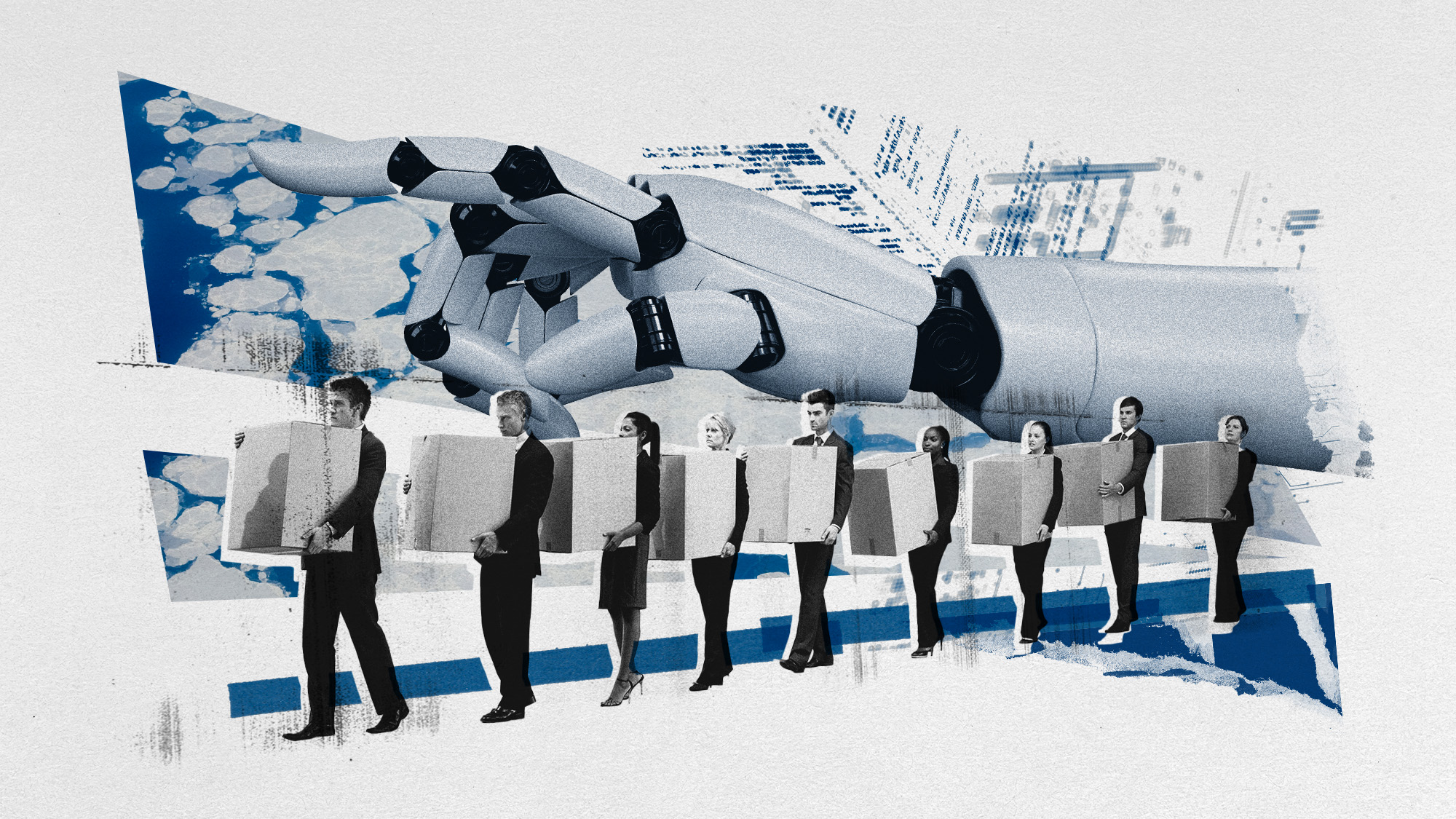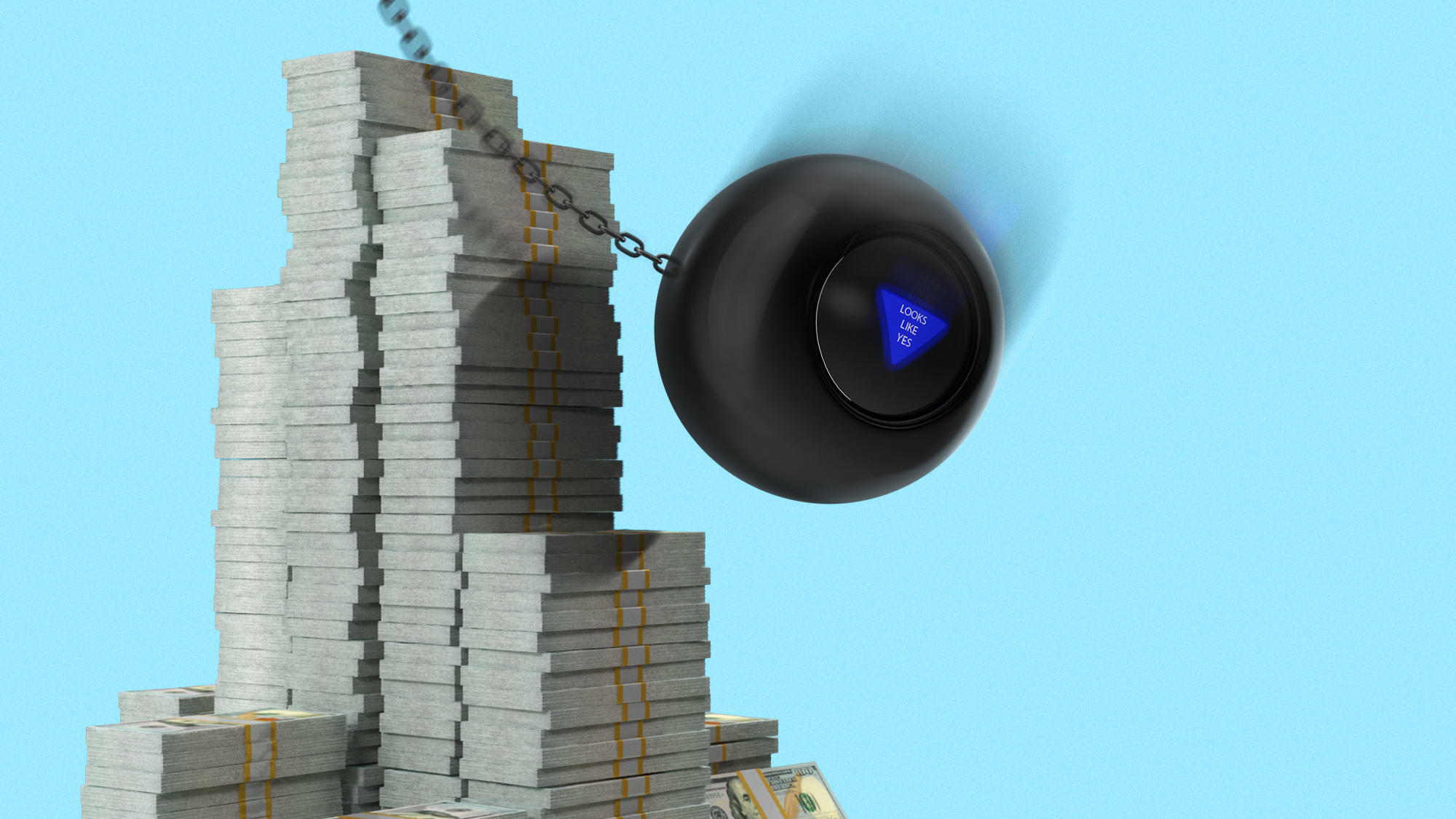US economy nosedives with worst yet to come
Current figures do not take April into account, and as such do not show the effect of much of the economic shutdown


A free daily email with the biggest news stories of the day – and the best features from TheWeek.com
You are now subscribed
Your newsletter sign-up was successful
The United State’s gross domestic product (GDP) shrank 4.8% in the first quarter of 2020 - three months where the country’s economy was hit hard by lockdowns in response to the coronavirus pandemic.
The figures, however, do not take April into account, and as such do not show the effect of some of the most comprehensive economic shutdowns that have closed businesses and seen 26.5 million citizens file for unemployment benefits.
Because of this, many analysts are convinced the next tranche of economic data will reveal an even bigger contraction, the likes of which has not been seen since the Great Depression of the 1930s.
The Week
Escape your echo chamber. Get the facts behind the news, plus analysis from multiple perspectives.

Sign up for The Week's Free Newsletters
From our morning news briefing to a weekly Good News Newsletter, get the best of The Week delivered directly to your inbox.
From our morning news briefing to a weekly Good News Newsletter, get the best of The Week delivered directly to your inbox.
The slump - announced by the commerce department yesterday - ends the longest period of uninterrupted economic growth in America’s history, and was the largest single quarterly decline since the 2008 financial crash.
“There is much worse to come,” says The New York Times. “Widespread layoffs and business closings didn’t hit until late March in most of the country. Economists expect figures from the current quarter, which will capture the shutdown’s impact more fully, to show that GDP contracted at an annual rate of 30 percent or more.”
As a recession is an economic contraction that lasts for two consecutive quarters, the US can now be said with confidence to be in the midst of a severe recession.
Jerome Powell, the chairman of the Federal Reserve, acknowledged in the wake of yesterday’s bleak report that the US economy was in ”sharp decline,“ and said the scale of the downturn was unprecedented.
A free daily email with the biggest news stories of the day – and the best features from TheWeek.com
”We are going to see economic data for the second quarter that is worse than any data we have seen for the economy,“ Powell said. ”These are direct consequences of the disease and measures we are taking to protect ourselves from it.“
–––––––––––––––––––––––––––––––For a round-up of the most important stories from around the world - and a concise, refreshing and balanced take on the week’s news agenda - try The Week magazine. Start your trial subscription today –––––––––––––––––––––––––––––––
He continued that his central bank would act to prop up the economy - including keeping interest rates at zero.
“We will continue to use these powers forcefully, proactively and aggressively until we are confident that we are solidly on the road to recovery,” said Powell in a video news conference. “These are lending powers and not spending powers.”
Attention is beginning to turn to recovery, and how best to stimulate it. If the economy can start to tick again quickly after the pandemic eases, then it should be able to avoid a depression, which must go on for years to earn the name.
“The question is how long the pain will linger for the millions of Americans who have lost their jobs and for small-business owners on the verge of bankruptcy,” says The Washington Post.
While the economy would have to contend with whole sectors creaking back into action, it would also have to lower consumer confidence, Powell said.
“Until [consumers] are confident the virus is well and truly under control, they will be somewhat reluctant to undertake certain kinds of activity,” he explained.
William Gritten is a London-born, New York-based strategist and writer focusing on politics and international affairs.
-
 The environmental cost of GLP-1s
The environmental cost of GLP-1sThe explainer Producing the drugs is a dirty process
-
 Greenland’s capital becomes ground zero for the country’s diplomatic straits
Greenland’s capital becomes ground zero for the country’s diplomatic straitsIN THE SPOTLIGHT A flurry of new consular activity in Nuuk shows how important Greenland has become to Europeans’ anxiety about American imperialism
-
 ‘This is something that happens all too often’
‘This is something that happens all too often’Instant Opinion Opinion, comment and editorials of the day
-
 Will Trump’s 10% credit card rate limit actually help consumers?
Will Trump’s 10% credit card rate limit actually help consumers?Today's Big Question Banks say they would pull back on credit
-
 How prediction markets have spread to politics
How prediction markets have spread to politicsThe explainer Everything’s a gamble
-
 What will the US economy look like in 2026?
What will the US economy look like in 2026?Today’s Big Question Wall Street is bullish, but uncertain
-
 Unemployment rate ticks up amid fall job losses
Unemployment rate ticks up amid fall job lossesSpeed Read Data released by the Commerce Department indicates ‘one of the weakest American labor markets in years’
-
 Fast food is no longer affordable for low-income Americans
Fast food is no longer affordable for low-income AmericansThe explainer Cheap meals are getting farther out of reach
-
 How Tesla can make Elon Musk the world’s first trillionaire
How Tesla can make Elon Musk the world’s first trillionaireIn The Spotlight The package agreed by the Tesla board outlines several key milestones over a 10-year period
-
 Is the job market frozen or faltering?
Is the job market frozen or faltering?Today's Big Question Layoffs raise alarms while young workers eye law school
-
 Is the US in recession?
Is the US in recession?Today's Big Question ‘Unofficial signals’ are flashing red
